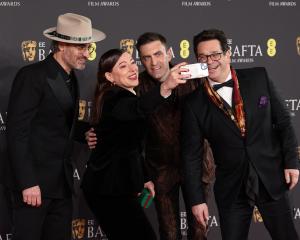
"The work of the school is quite solidly community-focused and not necessarily to do with sport.
"It might be about ageing, it might be about rehabilitation from disease, such as the breast cancer clinic we have ... it’s a common misconception that physed school is about teaching children how to bounce balls. It’s a lot more than that," he said.
A faculty member since 2003, Prof Button is perhaps best-known for his work on water safety.
He recently published research which found of 48 children from Dunedin primary schools, 62% were unable to swim 100m unaided.
He has also worked with SnowSports New Zealand, Netball New Zealand, New Zealand Football and Motorsport New Zealand and his current project uses active video games to assess and develop children’s movement competency.
"We are after something that will hopefully measure the general movement competency of children, which is a holy grail in this development area," Dr Button said.
"I’m fascinated by children and how they move, and whether there is such a thing as fundamental movements.
"We are developing a series of games which will be fun for the kids first and foremost, but which will also give us precise measurements about their movement competency, which is quite a difficult thing to measure on existing instruments."
In this area, too, the reach of physed stretches far beyond physical and sporting prowess.
This week Prof Button spoke about his research to staff at the Department of Surgery Sciences at Dunedin Hospital, who told him there was no competency test for trainee surgeons other than their academic grades "It fascinated me that you have people who become so skilled in their movement patterns, but they have no way of monitoring or screening people in, for example, their levels of dexterity," he said.
"So there could be interesting applications, not just in sport and physed, but some other areas as well."
Former dean Doug Booth is staying with the department in a teaching and emeritus role.












